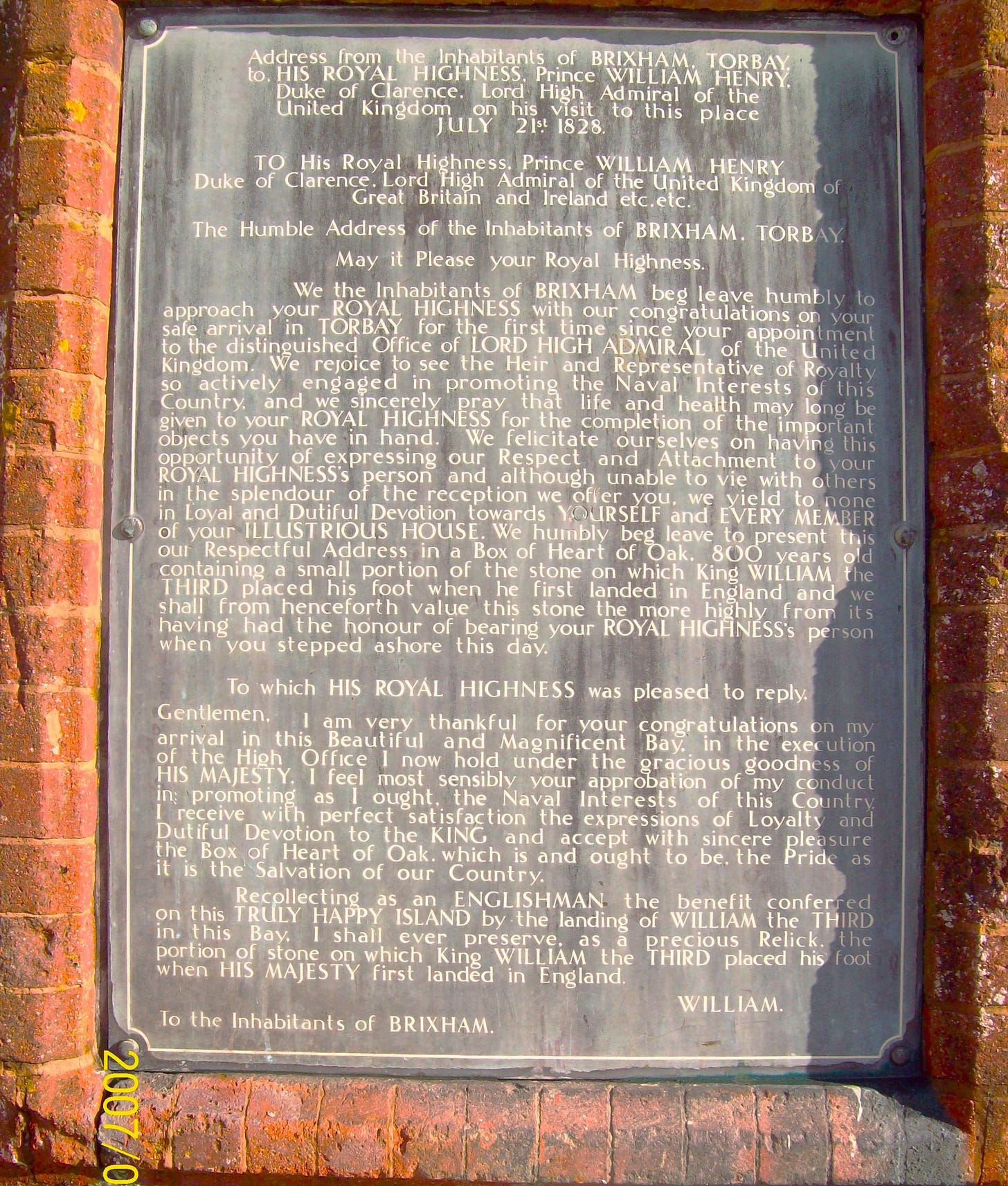When Britain And Its Constitution Worked
Many readers will know how the British fishing industry was crushed by the Conservative government’s incompetent negotiations with the Common Market in 1972, which granted member European fleets the right to fish right up to our shoreline.
There was once a time when the people could support themselves and the Constitution defended our national interests.
At Brixham, Devon, where William of Orange landed in 1688, bringing with him the Glorious Revolution that redefined relations between the people and their monarch, there is a little-noticed plaque fixed to the harbour wall. It commemorates a visit by the Duke of Clarence in 1828, recently appointed Lord High Admiral. The Duke was presented with an oak box containing part of the stone on which his ancestor had first disembarked.
The Inhabitants congratulate him and say ‘We rejoice to see the Heir and Representative of Royalty so actively engaged in promoting the Naval Interests of this Country.’
The Admiral thanks them and promises to preserve the relic, ‘Recollecting as an ENGLISHMAN the benefit conferred on this TRULY HAPPY ISLAND by the landing of WILLIAM the THIRD in this Bay.’
Gracious words and rituals matter.
As I write this, the King is about to give his ‘Gracious Speech’ to the Lords and Commons. Traditionally he is given a printed copy of it by the Lord Chancellor; before New Labour took power the latter would then retreat backwards from the throne, but from 1998 ‘they now have the option to turn their back on the Sovereign’ - as the new Lord Chancellor Shabana Mahmood has just done.
Blair’s shattering of our polity is not yet complete, but it began in studied rudeness and has recommenced afresh with the showing-off of a Labour MP Clive Lewis who said when taking the Oath of Allegiance that he did so ‘under protest and in the hope that one day my fellow citizens will democratically decide to live in a republic.’
We shall not be a republic if Mr Starmer sees through his plans for devolution and the emasculation of Parliament; we shall be forced back into the European Union as a fragmented, impoverished and humiliated satrapy.
I prefer to recall the verbal elegance, courtesy, affection and pride in Brixham’s plaque, and hope for confusion to the enemies of his Majesty and the Crown in Parliament.




